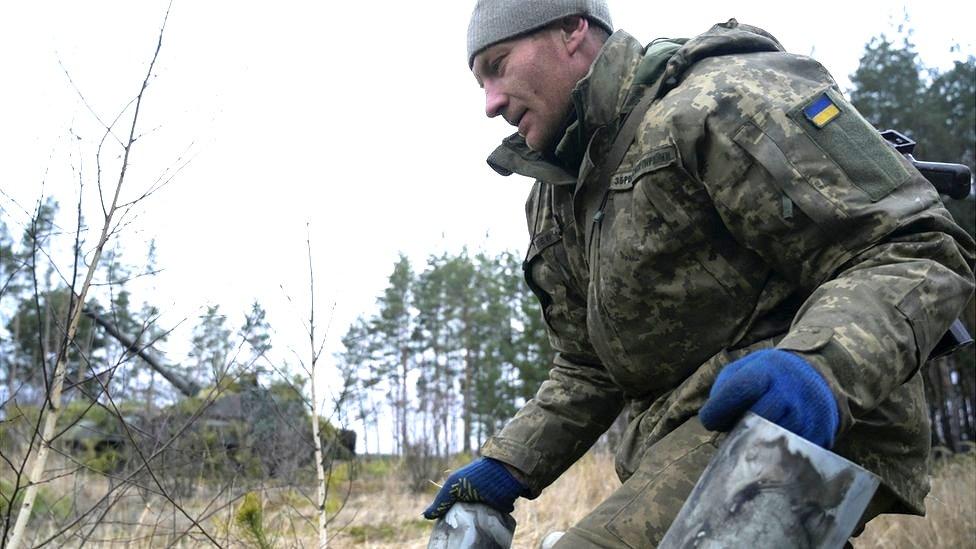On the road to Mariupol, a southern Ukrainian town fears for the worst
- Published
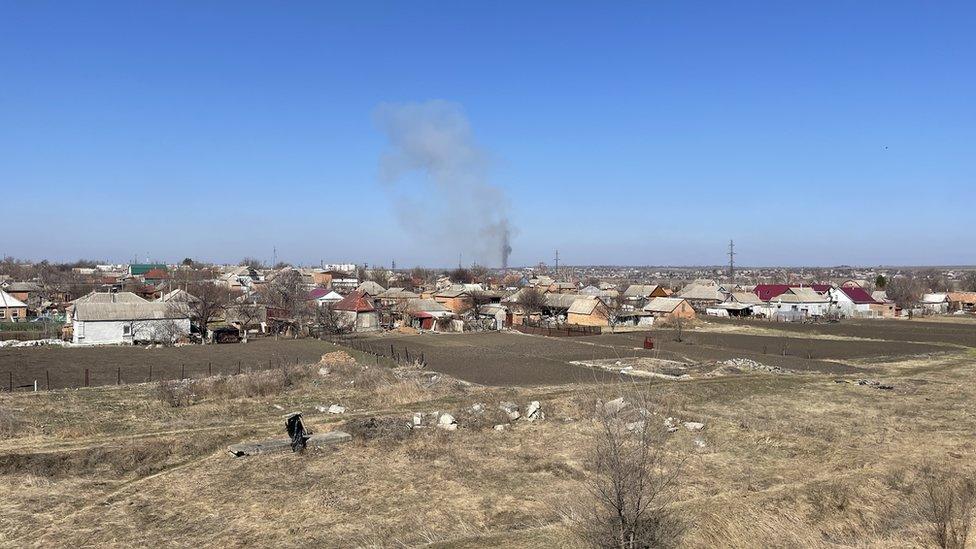
At a vantage point somewhere between the southern Ukrainian cities of Zaporizhzhia and Mariupol, next to one of the last checkpoints before Russian-held territory, Sergei scans the endless flatlands - the rich, fertile farmland that Russia now wants for itself.
The 62-year-old never envisaged taking up arms against the might of Moscow, but he knows full well what the Russian army is capable of doing.
"I'm doing this to show an example to younger people," Sergei tells me, barely flinching at the hollow thud of a shell landing a couple of kilometres away.
"I used to work as fire engine driver, then I took up arms to protect my homeland. We know what's happening [in Mariupol] and we must not let that happen here. These people in this town know that we're here for them."
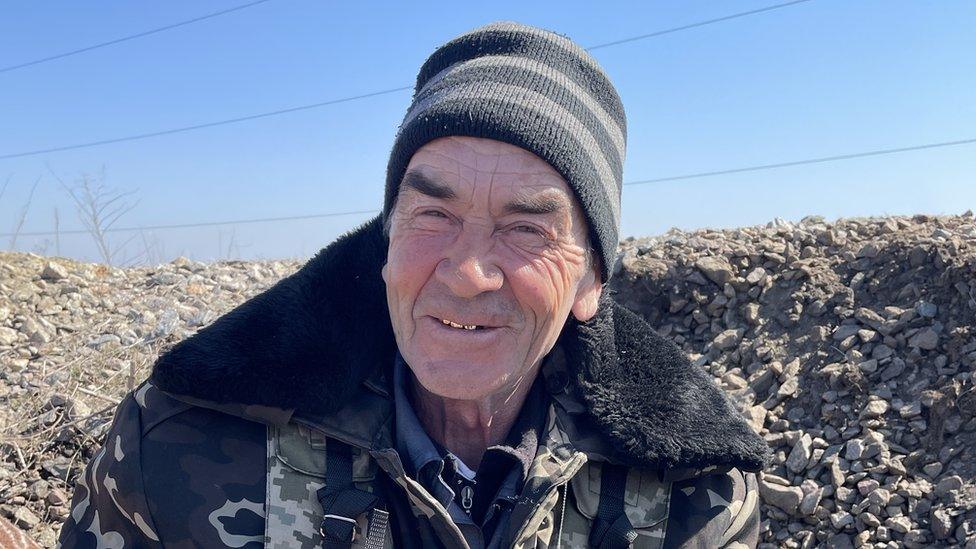
Sergei, 62, does not want his town to have a similar fate to Mariupol which has been bombarded for weeks
In recent days, here in southern Ukraine at least, neither side has really made much notable progress on the ground. At Ukrainian defensive positions, two or three kilometres behind the front line, regular and reservist forces are dug in, with supplies and weapons, preparing for whatever Russia will do next.
Will the Kremlin launch a tank and infantry-led ground offensive or, as it has done elsewhere in the south, launch intensive missile and rocket attacks against urban populations?
That is the big question.
Towns across the region are targets for Russian artillery - the bombs are getting close and nowhere in the south is really safe. As things became too close for comfort near the front, we left Sergei in his foxhole and retreated to safer ground.
There are few words that can accurately describe the horrors inflicted on Mariupol and the 100,000 people trapped inside the city. Images snatched by drivers able to flee, often past unburied bodies lying in the streets, show a catastrophic landscape, shredded by Russian artillery.
There are drone images of starving residents, emerging from shelters, to queue for food. And there is new chaotic footage from last week's theatre attack, in which 300 people were killed, according to Ukrainian officials.
At a civic centre, along the road back north we found several students volunteering in a communal kitchen. What is happening in Mariupol has had a profound effect on young people in the south too.
"It's really heart-breaking because people are dying right now," says 18-year-old Nastia Pesco.
"I don't know how to react and process this. But I hope we can be better versions of ourselves after this is over," she adds, somewhat ruefully.
"There are no shortage of volunteers and reservists in this region wanting to avenge what's happening in Mariupol," says Major Serhiii Koba, who is in charge of a Ukrainian army unit. He spoke to the BBC as a large group of men were cleaning their rifles and kit - exhausted after almost three weeks on the front.
"Many of our fighters come from places that are currently under Russian occupation," Maj Koba told me - emphasising the ties and commitment that men from this region have invested in this fight, perhaps unlike their Russian foes.
"All of them have parents, wives and families there - so each one of us is determined to win back our lands as soon as possible," he said.
The Ukrainian forces aren't having it all their own way, despite the Russian advance having stalled on the ground in recent days.
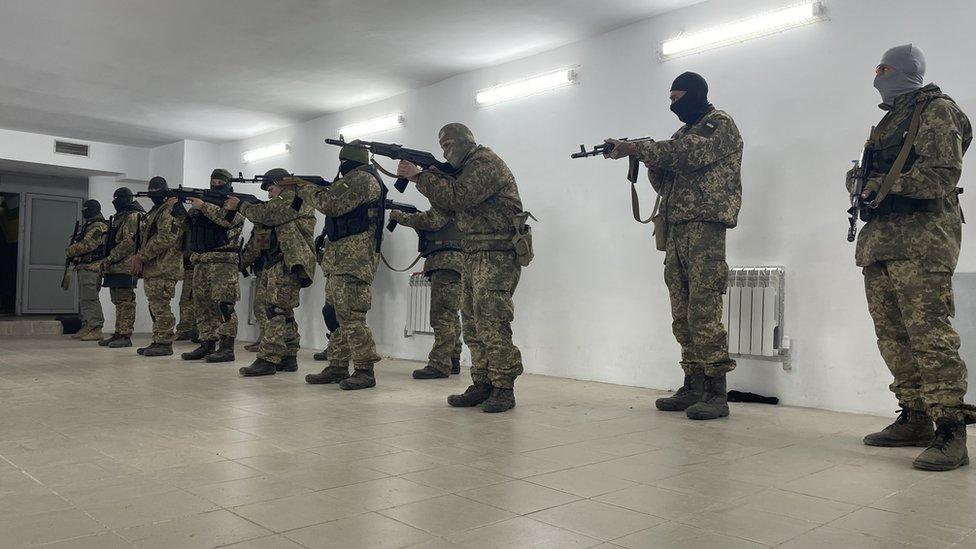
The BBC team met a unit training underground in a location that cannot be disclosed for security reasons
There was a good reason the unit we met was training underground in an undisclosed location. Volunteers and reservists, being put through their drills and battlefield skills by the company sergeant were deliberately doing so indoors, despite there being ample room outside.
One thing they have learned over the last month is that the sky is full of Russian drones trying to spot their every move. In recent weeks, several Ukrainian military training facilities are reported to have been hit by Russian fire.
As we left, there was certainly no disguising the overwhelmingly positive mood among the Ukrainian soldiers we met - professional fighters and those who've volunteered - despite the reality of what is happening in some of those cities where Russian bombing has wiped out almost every vestige of civilisation.
We travelled back, in the other direction, on the road to Mariupol. A road fraught with dangers, but a road and a destination pivotal to how this war moves on.

War in Ukraine: More coverage
APPROACH TO KYIV: Battle on capital's outskirts
MOSCOW SHIFT: Change of emphasis or admission of failure?
READ MORE: Full coverage of the crisis, external
Related topics
- Published20 March 2022
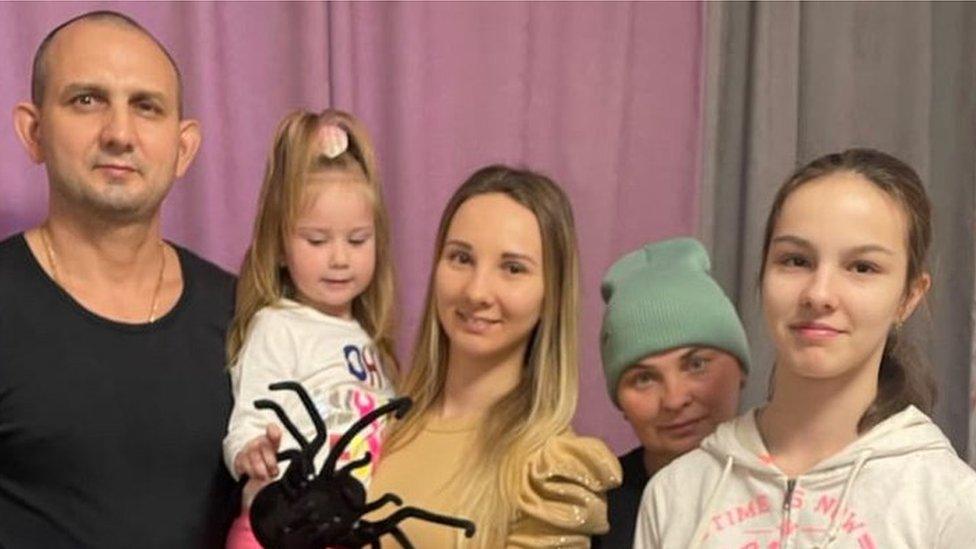
- Published25 March 2022
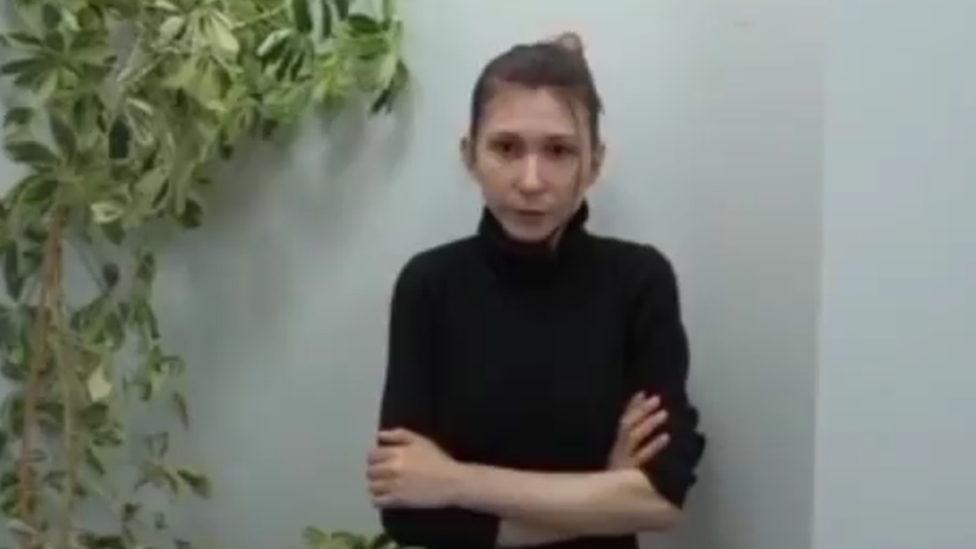
- Published24 March 2022
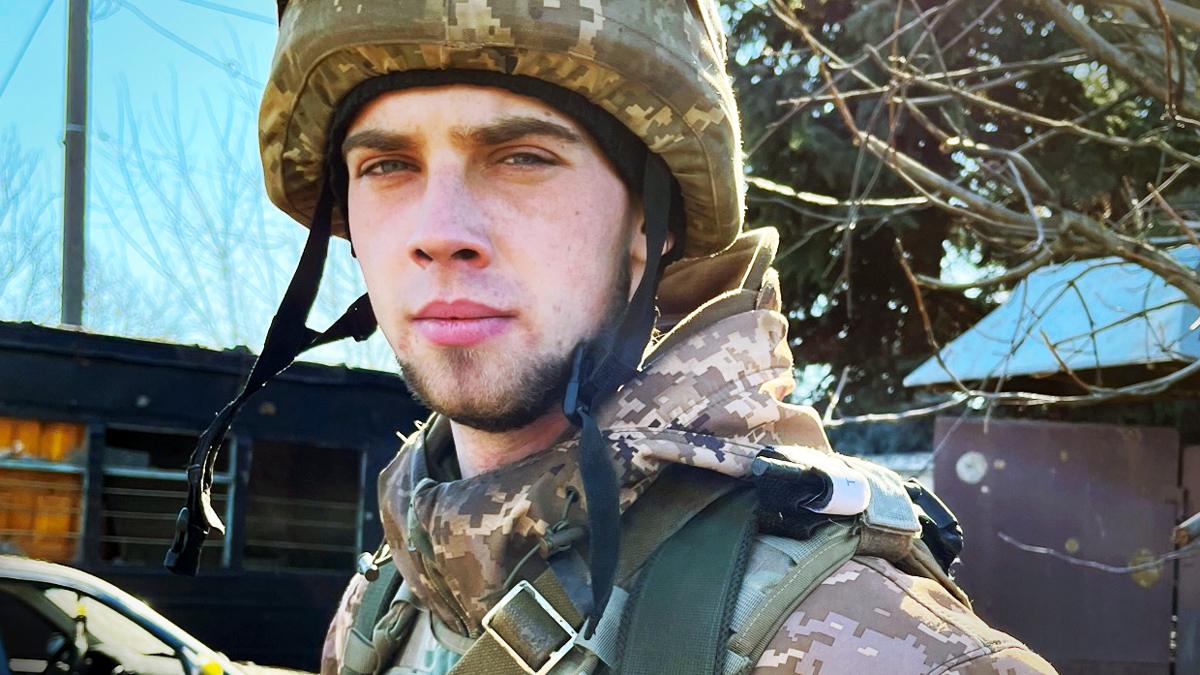
- Published24 March 2022
